Turning the public eye on company ownership in Ghana
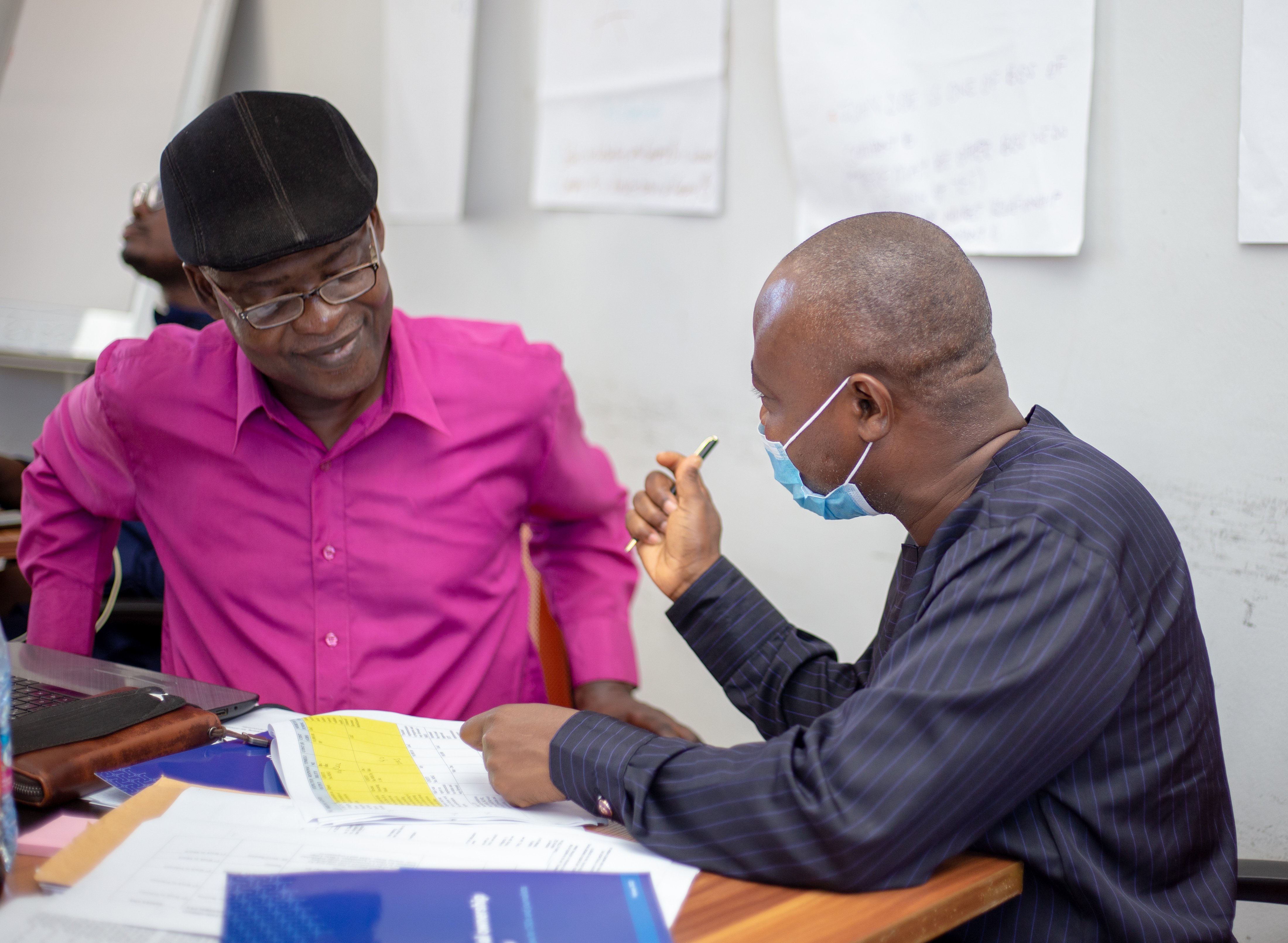
In times of a commodity boom and bust cycle, corruption risks may be heightened by opaque corporate ownership structures. A group of journalists and CSOs in Ghana are building their capacities to strengthen their oversight role.
Opacity is a challenge in the corporate sector. In 2021, the Pandora Papers – following previous leaks such as the Panama Papers – revealed that hidden ownership structures incentivise money laundering, illicit financial flows and tax evasion. The boom in demand for critical minerals and decline in demand for fossil fuels due to the global transition to a low-carbon economy is speeding up corporate deals and exacerbating governance risk caused by the lack of oversight.
In Ghana, successive governments in the last decade have made high-level commitments and associated actions to accelerate beneficial ownership disclosure to promote transparency, curb opacity and disincentivise corrupt practices. In 2019, the government introduced a new Companies Act (992), mandating companies to submit information about their ultimate beneficial owners to the Registrar General's Department (RGD). It also established a central register in 2020 with ownership data for over 200,000 entities. Thus far, civil society organisations (CSOs), media and citizens have not yet thoroughly used the register to exercise oversight and ensure accountable governance.
To this end, the RGD and the Ghana Extractive Industries Transparency Initiative (GHEITI) hosted a workshop as part of the Opening Extractives Programme to strengthen the capacities of nearly 30 civil society advocates, journalists and citizens in accessing and using beneficial ownership information to inform investigative reporting and data-driven advocacy. The workshop served to demystify beneficial ownership; while nearly two thirds of the participants were familiar with the concept, over 80% had previously never worked with such data.
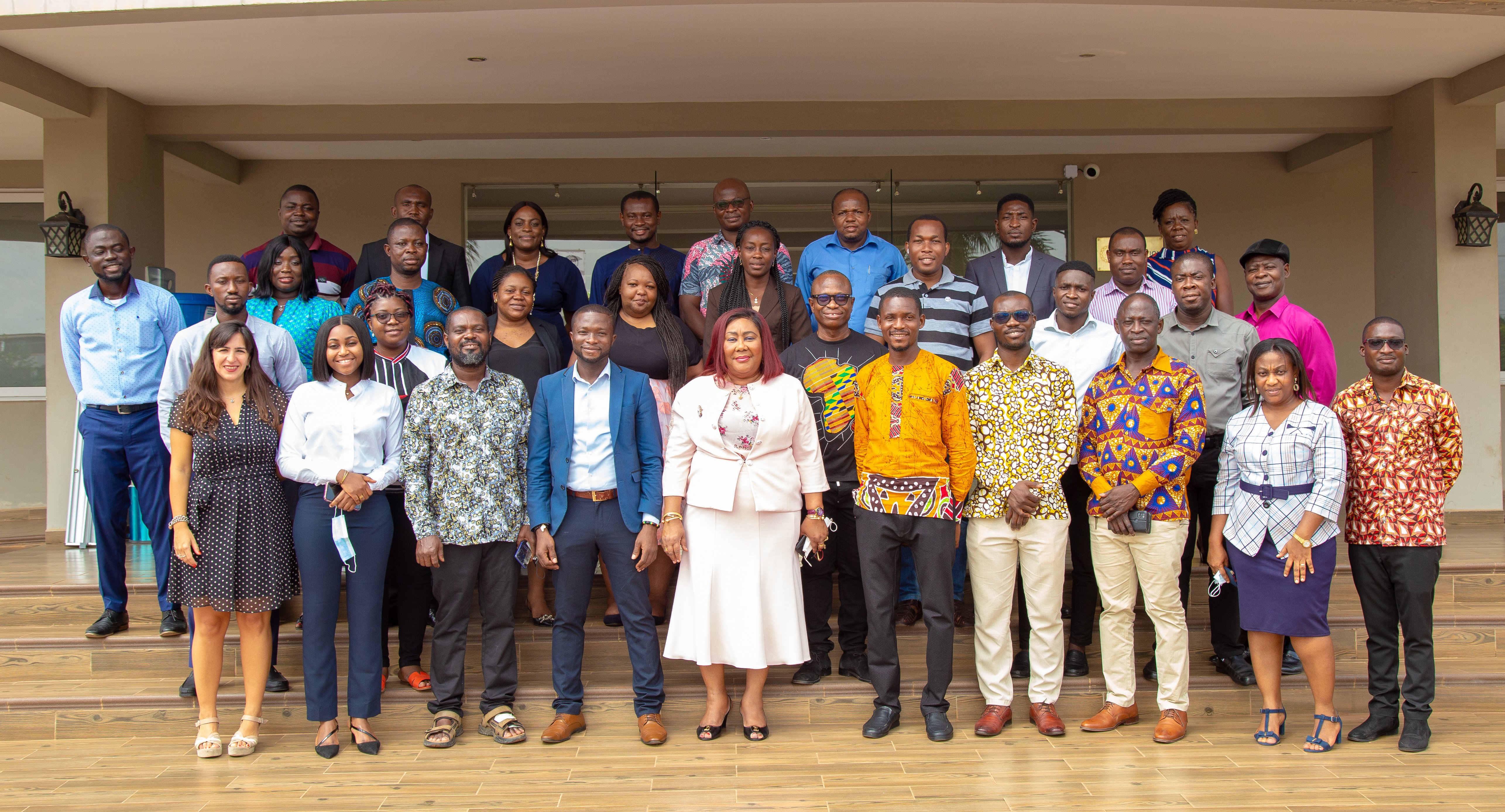
Photo: Participants, trainers and key speakers gather for a workshop on using beneficial ownership data in Ghana. Source: Ghana EITI
Broadening oversight: What, why, and how?
Participants engaged in practical exercises to better understand and identify complexities in different types of company ownership structures. “Whether corporate ownership is distributed through another company, trust or other arrangements, human beings always sit at the top of the chain,” noted Favour Ime, Country Associate at Open Ownership.
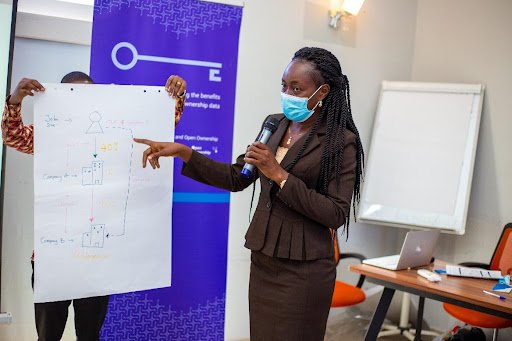
Photo: Participants explaining understanding of beneficial owner during a group exercise. Source: Ghana EITI
To place beneficial ownership into context, investigative journalists Emmanuel K. Dogbevi and Manasseh Azure Awuni and CSO advocacy experts Dr Steve Manteaw and Samuel Bekoe presented specific investigations and research to demonstrate how complex ownership structures aided corrupt practices in Ghana and beyond. The “Contracts for sale” investigation, the Pandora Papers investigation in Ghana, the West Africa Leaks and a transfer pricing research report also offered practical examples of research methodologies and techniques of investigating beneficial ownership data. This type of reporting underscores the importance of using beneficial ownership transparency to identify mismanagement or corrupt practices and hold companies and their ultimate beneficiaries to account.
The takeaway: data-driven investigative reporting should be built on a systematic, critical and fact-based process that draws on proven methods (see here and here). Among the to-do list includes the need to develop and test a hypothesis, identify key targets and connect the dots between different sources of information. In some cases, this could mean resorting to an approach of “going undercover” to obtain information. Reviewing and validating varied sources – including formal government sources as well as alternative sources such as leaks, tip offs and informants – should be a priority for stakeholders seeking to undertake systematic investigative reporting.
Accessing and using beneficial ownership data: Where?
For data to be used for public debate – a key principle of the EITI – stakeholders must be able to access and analyse information. For newer data portals such as the RGD’s beneficial ownership register, ensuring public awareness of such resources is as equally important as building technical capacity in using the data.
To promote use of the register, the RGD took participants through the practical steps in assessing data from the public BO register. The register provides ownership data of persons who own an interest of 20% or more or who substantially control a corporate entity registered in Ghana. The ownership threshold is lower (5%) for high-risk sectors such as the extractive and gaming industries. All politically exposed persons (PEPs) with ownership interests must be included in the register, regardless of threshold. To access the register, stakeholders must pay a fee of around USD 4.00.
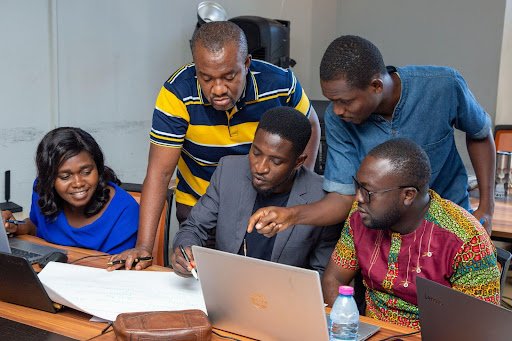
Photo: CSO and media representatives in Ghana are trained to use a beneficial ownership register. Source: Ghana EITI
The Principal State Attorney at the RGD, Ms. Domtie Sarpong, recognised that civil society organisations (CSOs) have advocated and engaged policymakers to ensure commitments were institutionalised, namely with a legal framework and public register. While a reporting system is now in place, there continue to be challenges with data collection and quality. Ghana’s Registrar General, Mrs. Oware, was hopeful that by strengthening their understanding of beneficial ownership data, CSOs and media would be better equipped to undertake their advocacy work and investigations, and that public oversight would improve verification and quality assurances of beneficial ownership information.
Working together
Disclosing beneficial ownership data yields limited outcomes if it is not accessed and analysed. The Opening Extractives Programme is supporting selected media and CSO champions to pilot investigative projects that uses beneficial ownership data from the RGD register in the coming months. As demand trends for critical minerals and fossil fuels are expected to shift, accountability mechanisms and public scrutiny are needed more than ever. Engagement from media, CSOs and citizens is essential to combat corporate secrecy and ensure that resources are managed in the interest of citizens.
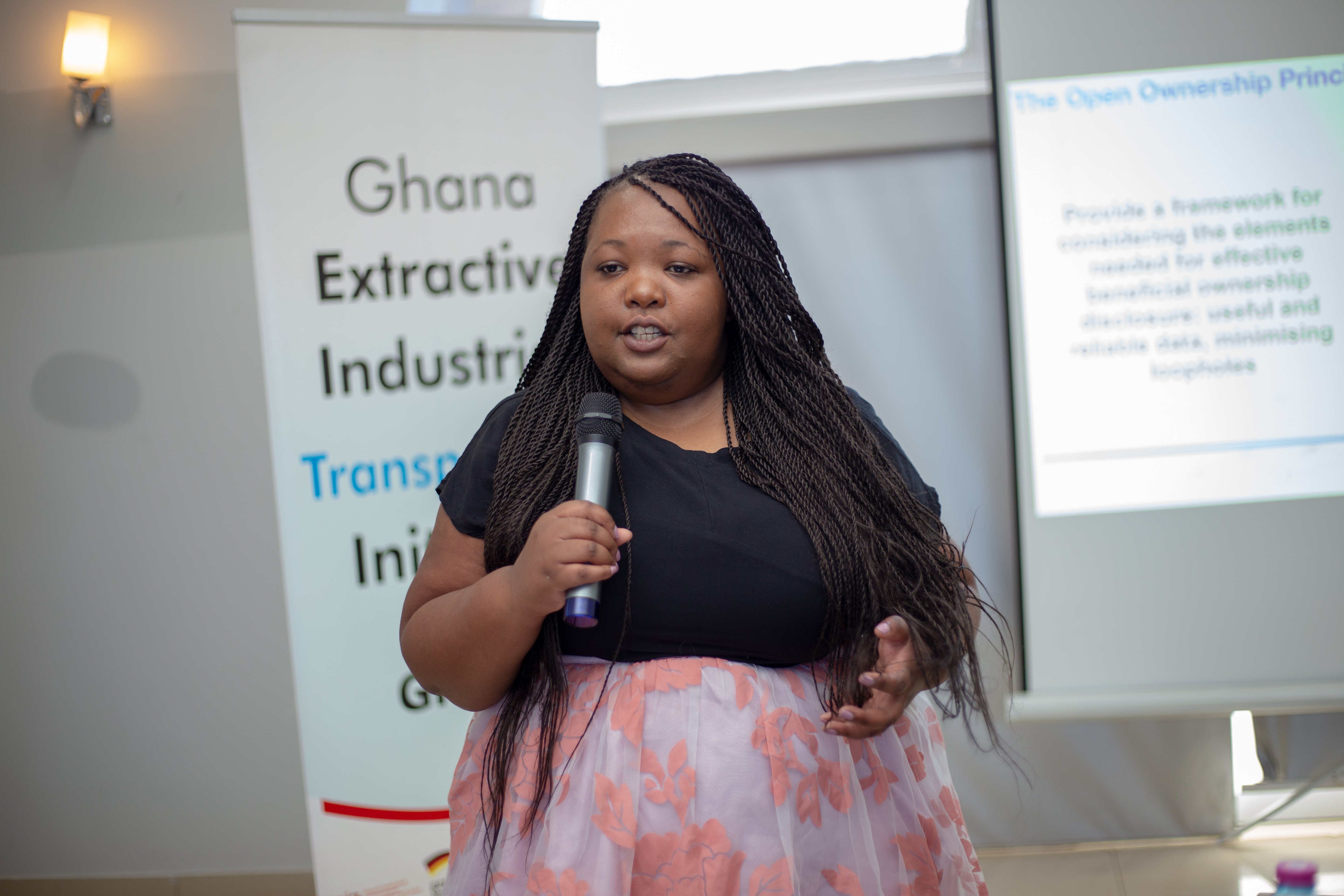
Photo: Open Ownership's Director of Country Programmes Karabo Rajuili. Source: Ghana EITI
We would like to extend our special appreciation to the workshop speakers, facilitators and planning team:
- Jemima Oware, Ghana’s Registrar General
- Doris Ampadu Ameyaw, Head of IT at the Registrar General's Department
- Domtie Sarpong, Principal State Attorney
- Lysbeth Osae-Omane, State Attorney and Assistant Registrar;
- Emmanuel K. Dogbevi, Journalist, Ghana Business News and NewsBridge Africa
- Manasseh Azure Awuni, independent journalist and Editor-in-Chief at The Fourth Estate
- Dr. Steve Manteaw, Co-Chair, GHEITI’s Multi Stakeholder Group
- Dr. Bash Razak, National Coordinator, Ghana EITI (GHEITI)
- Samuel Osek-Bekoe, Economist and Governance expert, Opening Extractives Programme consultant
- Favour Ime, Regional Associate, Africa, Open Ownership
- Karabo Rajuili, Director of Country Programmes, Open Ownership
- Stephen Abbott Pugh, Data and Technology Manager, Open Ownership
Investigating beneficial ownership
These infographics provide key steps and resources for media and CSO to use, interrogate, and analyse beneficial ownership data in Ghana.